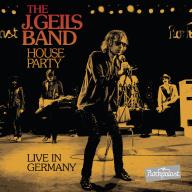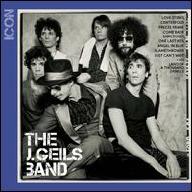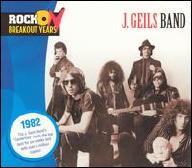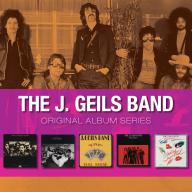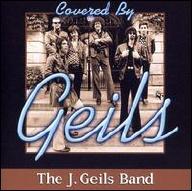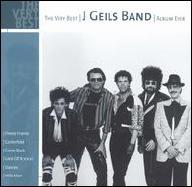Guitarist J. Geils, bassist Danny Klein, and harpist Magic Dick (born Richard Salwitz) began performing as an acoustic blues trio sometime in the mid-'60s. In 1967, drummer Stephen Jo Bladd and vocalist Peter Wolf joined the group, and the band went electric. Before joining the J. Geils Band, Bladd and Wolf played together in the Boston-based rock revivalist band the Hallucinations. Both musicians shared a love of arcane doo wop, blues, R&B, and rock & roll, and Wolf had become well-known by spinning such obscure singles as a jive-talking WBCN DJ called Woofuh Goofuh. Wolf and Bladd's specialized tastes became a central force in the newly revamped J. Geils Band, whose members positioned themselves as tough '50s greasers in opposition to the colorful psychedelic rockers who dominated the East Coast in the late '60s. Soon, the band had earned a sizable local following, including Seth Justman, an organist who was studying at Boston University. Justman joined the band in 1968, and the band continued to tour for the next few years, landing a record contract with Atlantic in 1970.
The J. Geils Band was a regional hit upon its early 1970 release, and it earned favorable reviews, especially from Rolling Stone. The group's second album, The Morning After, appeared later that year and, thanks to the Top 40 hit "Looking for a Love," the album expanded the band's following. However, the J. Geils Band continued to win new fans primarily through their concerts, so it was no surprise that their third album, 1972's Full House, was a live set. It was followed by Bloodshot, a record that climbed into the Top Ten on the strength of the Top 40 hit "Give It to Me." Following the relative failure of 1973's Ladies Invited, the band had another hit with 1974's Nightmares, which featured the number 12 single "Must of Got Lost." While their live shows remained popular throughout the mid-'70s, both Hot Line (1975) and the live Blow Your Face Out (1976) were significant commercial disappointments. The band revamped its sound and shortened its name to "Geils" for 1977's Monkey Island. While the album received good reviews, the record failed to bring the group increased sales.
In 1978, the J. Geils Band left Atlantic Records for EMI, releasing Sanctuary later that year. Sanctuary slowly gained a following, becoming their first gold album since Bloodshot. Love Stinks (1980) expanded the group's following even more, peaking at number 18 in the charts and setting the stage for 1981's Freeze Frame, the band's high-water mark. Supported by the infectious single "Centerfold" -- which featured a memorable video that received heavy MTV airplay -- and boasting a sleek, radio-ready sound, Freeze Frame climbed to number one. "Centerfold" shot to the top of the charts late in 1981, spending six weeks at number one; its follow-up, "Freeze-Frame," was nearly as successful, reaching number four in the spring of 1982. The live album Showtime! became a gold album shortly after its late 1982 release.
While the band was experiencing the greatest commercial success of its career, relationships between the members, particularly writing partners Justman and Wolf, were volatile. When the group refused to record material Wolf had written with Don Covay and Michael Jonzun, he left the band in the middle of a 1983 recording session. Justman assumed lead vocals, and the group released You're Gettin' Even While I'm Gettin' Odd in late 1984, several months after Wolf's successful solo debut, Lights Out. The J. Geils Band's record was a failure, and the band broke up in 1985. Magic Dick and J. Geils reunited in 1993 to form a contemporary blues band that released two CDs, Bluestime and Little Car Blues. Geils died in 2017 at the age of 71. ~ Stephen Thomas Erlewine, Rovi


